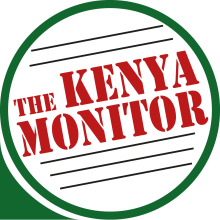
The Marsabit County Assembly has been put on the spot by the Auditor General’s report that paints a picture of an assembly unable to spend all allocations budgeted, return unspent funds, provide documentary evidence for expenditure and made irregular payments, shedding light into serious alleged corruption that is robing Marsabit residents quality service delivery.
According to the report titled, “the financial operations of Marsabit County Assembly for the period 1 July 2013 to 30 June, 2014,” the audit included verification and confirmation of transactions in respect to;
i) Budgetary controls and performance
(ii) Procurement of goods, works and services
(iii) Allowances including travelling and accommodation expenses for local and foreign trips.
(iv) Motor vehicle running expenses – Fuel
(v) Imprests and advances
(vi) Human Resource Records
(vii) Information Technology Environment
(viii) Non-current assets
(ix) Debtors – Car Loans for MCAs
The Assembly failed in the above areas raising concerns over its ability to also fight corruption in the executive. For a County that is semi-desert and needs all resources it can get, the report reveals that
The County Assembly incurred an expenditure of sh303, 067, 684 under recurrent vote out of the approved budget of sh304,491,716 for the year 2013/2014 hence leaving unspent balance of sh1,424,032.
It adds that;
During the same period, sh100,000,000 was received for Car Loan and Mortgage Scheme for Members of County Assembly (MCAs). Out of this amount, sh86, 522, 880 was disbursed to the MCAs as Car loans during the year leaving unspent balance of sh13,477,120. However, the unspent balances at the end of the year were not surrendered to Exchequer Account for re-allocation as required.
Inability to spend money budgeted, meaning it had been planned and also failing to refund unspent money is telling of an assembly, as people’s representatives for the county of Marsabit that its perennial marginalization is here to stay, only that this time the marginalization is partly contributed by own leaders.
The purchase of motor vehicles was also questioned. The County Assembly procured four motor vehicles from a supplier at a cost of sh31,033,000. However, it was observed that the motor vehicles were not inspected by the Inspection and Acceptance Committee as no report accepting delivery of the motor vehicles was produced for audit verification. Further, the Log books for the motor vehicles registration numbers KBZ 902D and KBZ 350D had not been delivered as at the conclusion of the audit on 19 February 2015. The report says
No explanation was given for failure to have the motor vehicles inspected on delivery or why the log books were not in the custody of the County Assembly.
Some media houses were allegedly paid by the assembly a total of sh560,280 for advertisement of tender notices, County Assembly hearings and job vacancies. However, no documentary evidence was produced for audit verification to confirm that the services were rendered. In the circumstances, the propriety of the expenditure of sh560,280 could not be confirmed.
Irregular payments of sitting allowances, all too familiar in many counties, unearthed payments totaling to sh457,600 during the audit period.
Travelling and accommodation, which has seen some countries like Brazil, Rwanda and South Africa decline to receive Members of County Assemblies (MCAs) was also in the spot light in Marsabit. The report says the County Assembly incurred an expenditure of sh48,299,929 in respect of foreign travelling and accommodation out of the budgeted amount of sh48,300,000. Included in the total expenditure was sh16,869,176 paid to various Members of the County Assembly as per diem and air fare for trips to USA, Dubai and Israel. However,
it was observed that some members did not produce proof of travelling in terms of boarding passes, Passports (copies) and other necessary supporting documents. It was therefore not possible to confirm the propriety of the expenditure totaling sh16,869,176.
Other concerns raised by the Auditor General include sh7,679,000 as unsupported evidence accrued from local travels and events management related expenditures, a reallocation of sh4,800,000 from different approved estimate votes to cater for Ward Office expenditure without prior approved of the supplementary budget, sh4,061,630 in respect of medical expenses incurred by the MCA’s and members of staff yet there is no medical insurance policy or guidelines on the utilization of funds set aside to cater for medical expenses.
In addition, MCAs and the Speaker were granted car loans ranging from sh2,000,000 to sh3,000,000 each all totaling sh86,500,000 without providing necessary documents like loan and sale agreements. It is not clear whether the loans disbursed were secured by registering the loan vehicles in joint ownership.
Furthermore, the Marsabit county Assembly did not maintain a fixed assets register contrary to Section 149 (2) of the Public Finance Management Act, 2012. The County Assembly had purchased assets worth Kshs.22,388,494 since it stated operations.
To cap the financial mess during the period under review, the county Assembly did not have in place an internal audit department or any arrangement on how the functions of internal audit were to be carried out.
The audit shows that there is in excess of sh14.8M as unspent during the period of review, some colossal amount of money that could be put into better use.
The Auditor General Edward Ouko has made some recommendations for the county including that all unspent monies be surrendered to Exchequer Account for re-allocation, the County Assembly should ensure a higher absorption rate to enhance service delivery to the county residents, log books for the two motor vehicles should be made available for audit verification, tender documents should be availed for audit verification and irregularly paid sitting allowances should be recovered from the concerned MCAs.
Ouko concludes that
The County Assembly of Marsabit had challenges in its first year of operations ending including setting up the structures, staffing and adhering to the public finance management regulations and procedures for enhanced service delivery to the county residents. All anomalies noted should be addressed in order to ensure effective delivery of service to the people of Marsabit County.

